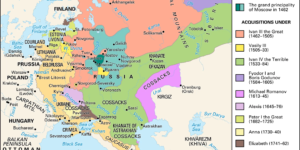Interview: Léonce Ndikumana On Africa And Capital Flight
No Comments yet This is part of PERI‘s economist interview series, hosted by GP Columnist C.J. Polychroniou.
This is part of PERI‘s economist interview series, hosted by GP Columnist C.J. Polychroniou.
C.J. Polychroniou:You studied economics as an undergraduate student in Burundi, but ended up in the United States for your graduate studies. Why economics, and which economic thinkers have had the greatest impact on you?
Léonce Ndikumana: When I enrolled in the Economics Department at the University of Burundi, I was not specifically attracted by any particular school of thought or any economic thinker. Economics was considered one of the challenging majors in the university and the major was perceived as a good path for professional success. But then as I studied economics more, I developed a keen interest in certain areas including economic development. Economics provided me with the framework and the tools to understand the challenges of underdevelopment and constraints to growth. As a son of a farmer, born in one of the least developed countries in the world, development was not just an academic topic, it was about issues that I myself had experienced or witnessed since my early childhood. I found the study of economic development both captivating as well as humbling; humbling in the sense that it gave me a better understanding of my own life path, and better appreciation of every step I had crossed towards building a decent life for myself and my family. Studying economic development is still fascinating to me up to today. But as I grew up and matured as an economist, studying economic development has become also more frustrating as I keep asking the same question of why obvious solutions are not embraced to address problems faced by populations in the developing world. The key to this puzzle is the incentive structures that guide policy making, specifically the distribution of power between those who benefits from the status quo vs. those who would potentially benefit from a change in the system towards generalized improvement in welfare. Countries remain stuck in ‘low-equilibrium’ situations because policy making is hijacked by the interest groups that benefit from the status quo, and when the majority who would benefit from change have no means to voice their concerns. Development and the lack of it are, by and large, a matter of the quality of institutions that govern economic policy making.
CJP: How did you end up teaching at UMass-Amherst?
LN: When I joined the Economics Department at UMass-Amherst in 1996, I was mostly attracted by the work in the Keynesian tradition. My training at Washington University in St. Louis (Missouri) was grounded in the Keynesian tradition, precisely New Keynesian macroeconomics. My dissertation explored the issue of financing firm investment in the context of imperfect markets. Working under my advisor, Professor Steven Fazzari, a premier leader in the field of New Keynesian macroeconomics, I had admired the work of Professor James Crotty, a major figure in Post-Keynesian macroeconomics who had a keen interest in the work on investment. James Crotty was a great mentor for me in my early days as an Assistant Professor; I learned a lot from him, and I will always be grateful for his guidance.
During my graduate training I was also fortunate to study under Nobel Prize winner Professor Douglass North, who taught me to appreciate the role of institutions in the evolution of modern economies. This cemented my interest in understanding the process of economic development. I wrote my field comprehensive exam paper on development in Burundi under his supervision. Once at UMass, I found a strong program in economic development, especially focused on Latin America and Asia. Fortunately, my colleague Jim Boyce gracefully opened his door and invited me to collaborate on research on Africa. That’s when we launched our work on capital flight from Africa, starting with a case study on the Congo under former president Mobutu. This partnership has continued up to today, producing a long series of academic papers and a book. We are currently engaged in research that is more granular and country specific to explores the mechanism of capital flight, including the role of the transnational network of ‘enablers’ composed of banks, major consulting, auditing, and law firms.[1] Our work on capital flight has played an important role in providing evidence to feed the global debate on illicit financial flows, culminating in the enactment by the United Nations of a target to combat illicit financial flows enshrined in the Sustainable Development Goals (Target 16.4). Capital flight remains my main area of research today.
CJP:Africa, you have argued in a 2015 article in African Studies Review, is being integrated yet marginalized in the global economy. Can Africa overcome being marginalized in the age of globalization without a change in global governance?
LN: In 2019, Africa’s total trade was 106 times higher than in 1950. During this period, however, the continent’s share in world trade declined from an unimpressive 6% to a meager 2%. Between 1970 and 2019, foreign direct investment inflows into Africa grew 35 times. But Africa’s share in world FDI dropped from 10% to 3%.[2] Clearly, in absolute terms, it may appear as though Africa has been increasingly ‘integrating’ in the global economy. But in reality, Africa has been growing more marginalized over time: it occupies a much smaller space today than before independence. One major reason is that Africa has failed to transform its economies, and continues to sell its cheap raw material in exchange for increasingly more expensive manufactured products. Technological innovation is lagging, and the continent has lost the competition in the global value chain.
Can it get worse? Unfortunately, yes! Africa can become even more marginalized unless global governance is reformed to accommodate more equitable participation in policy making so that Africa can have a voice to advance and defend its interest. It can get worse also unless there is successful global coalition to promote transparency and accountability in the global trade and financing systems so as to combat tax evasion, trade misinvoicing, banking secrecy, and all other mechanisms that facilitate and enable the plundering of Africa’s natural resources.
CJP: You have researched extensively the problem of capital flight from Africa. Can you briefly summarize the role of both domestic factors and external players in driving capital flight from Africa, as well as explain why, in comparison to other regions, capital flight is a more severe problem for sub-Saharan African countries?
LN: Capital flight from Africa is a major hindrance to efforts to move the continent’s economies to a path of high growth and sustainable development. It drains scarce and valuable resources that could be used to finance investments in public infrastructure, social services such as education and health, and to stimulate innovation and economic transformation.
The causes and drivers of capital flight from Africa are both a domestic and global. On the domestic front, capital flight is induced and facilitated by the breakdown of the regulatory and legal regimes that enable individuals and companies to smuggle goods and money abroad in contravention of customs and exchange controls. Some of the funds illicitly funneled abroad are in fact illicitly acquired through corrupt means by members the economic and political elite that are able to use their power and connections to embezzle public resources and also do so with impunity. Capital flight is therefore a result of the failure of national institutions. But there is also a reverse causation: capital flight erodes the quality of national institutions through habit formation and contagion effects. The orchestrators of capital flight invest in undermining the quality of institutions through corruption to make it easier for them to perpetuate their illicit dealings. These practices, which are typically orchestrated by the elite, are then emulated by private individuals as it becomes evident that the mechanisms of control and accountability are breaking down. As a result, capital flight becomes a self-perpetuating phenomenon: through hysteresis, countries with high capital flight are unable to break through the vicious cycle of financial hemorrhage.
Certain characteristics of the domestic economy tend to be associated with high risk of capital flight. One prominent feature is endowment in natural resources such as oil and minerals. Indeed, in our analysis, we find that natural-resource countries feature prominently on the list of countries with the highest amount of capital fight. These include Nigeria (number one on the list), Algeria, Angola, Cameroon, the Republic of Congo, and Gabon. It so happens that resource-rich countries with high capital flight also tend to score poorly on the quality of institutions. Indeed, countries such as Nigeria, Angola, and Gabon have been prominent sources of stories of grand corruption by political elites and embezzlement of natural resources. It is clear, therefore, that what drives capital flight in resource-rich countries is not natural resource endowment per se, but the poor management of these resources due to corrosive institutional environment. In that sense, capital flight may be a manifestation of the so-called ‘resource curse’.
On the global level, capital fight is facilitated by structural flaws in the international trade and financial systems that enable the illicit transfers funds and their concealment in banking systems outside of the continent, generally referred to as offshore financial centers. The flight of capital from Africa and its concealment abroad are facilitated and supported by a vast network of what we call ‘enablers’, which includes banks, accounting firms, law firms, auditing firms, and other ‘deal makers’ that help the flight capitalists to move money and keep it out of sight of national authorities. In reality, the so-called offshore financial centers are not small exotic tropical islands ruled by some rogue kings. The biggest financial centers that intermediate and host the illicit funds coming out of Africa and other developing countries are in fact major cities in advanced economies including London, New York, Paris, Brussels, Amsterdam and others. Because the stollen funds from Africa generate handsome returns to the banks and the other ‘enablers’, and help lubricate the economies of advanced countries, it is difficult for strong incentives to combat capital fight to emerge in the Global North. This is true, even though, from close scrutiny, it can be demonstrated that Western economies actually suffer from indirect effects of excessive financialization – or a ‘financial curse,’[3] which is exacerbated by illicit financial flows from the global south.
It is therefore clear that the solution to capital flight cannot only be a domestic solution; it must be a global solution.
CJP: South Africa has a highly diversified economy, yet it still experiences considerable capital flight as your own research has shown. What’s the explanation for capital flight from a highly developed and diversified economy like that of South Africa?
LN: Capital flight is not limited to underdeveloped resource-rich countries. It also afflicts diversified middle-income countries, as is the case of South Africa. The empirical and institutional analysis of capital flight from South Africa reveals a number of important factors that help explain the high capital flight, and it has important lessons for other countries. Here I single out two; more can be found in our recent publications which can be found online at https://www.peri.umass.edu/capital-flight-from-africa.
The first finding from our analysis is that an important driver of capital flight from South Africa is trade misinvoicing. This is a phenomenon where the value of exports declared to the authority is artificially under-estimated, enabling the exporter to pack extra foreign exchange abroad. On the import side, capital flight occurs when importers inflate the cost of imported goods as a way of claiming extra foreign exchange which they can stash abroad or use to settle transactions that are not reported to the authority – such as the purchase of smuggled goods.
Second, our recent institutional investigation linked capital fight and its various mechanisms to a phenomenon of ‘state capture’ that has afflicted the country in the post-Apartheid era. Influential and politically connected individuals and families, in collusion with powerful politicians and bureaucrats have been able to accumulate wealth illegally while eroding the management of the public sector, especially state-owned enterprises. In doing so, these individuals and families have enlisted the services and expertise of various enablers, including foreign banks and major international audit and accounting firms to both facilitate the ‘taking’ and also cover their tracks. Investigations of financial crimes associated with ‘state capture’ are still ongoing. Once concluded, they will certainly shed light on key mechanisms of capital flight and other forms of illicit financial flows from the country.
CJP: You and your department colleague at UMass-Amherst, James Boyce, have proposed a number of strategies for addressing capital flight. What’s the best way to prevent the flight of “dirty capital” (i.e., illegally acquired capital)?
LN: Following our analysis of the magnitude and the determinants of capital fight from Africa, we have proposed some strategies for curbing capital flight from Africa and also inducing repatriation of the hidden wealth stashed abroad. To curb capital flight, the focus should be on plugging the holes through which money leaks out of the countries. This would be done notably by increasing transparency and accountability in the management of government finances, including borrowed funds as well as domestically mobilized resources. Indeed, our analysis shows that a substantial fraction of borrowed funds is embezzled by the political elites and ends up fueling capital fight. To seal these leakages, governments must make public the sources, amounts, and utilization of externally funded, so that the public can be confident that borrowed funds are utilized effectively to finance economic development. In turn, lenders and donors must also scrutinize more systematically the use of the funds lent or granted to African countries to minimize the risks of embezzlement of aid and debt. When there is suspicion of corrupt management of aid and debt, lenders and donors must initiate systematic audits of public debts both at the source (on the donor side) and at the destination (on the borrower/recipient side). Full transparency, and responsible lending and borrowing are key conditions for minimizing capital flight fueled by external financing.
Another key channel of capital flight that must be handled is trade misinvoicing. This requires reforms in the customs services and transparency in the recording of trade statistics to ensure consistency between the values reported by African countries and those recorded by their trading partners. African countries, with the support of their development partners, need to beef up the technological and human capacity of the customs services to improve the monitoring, tracking, and reporting of international trade. They also need to strengthen the legal systems to ensure that violations of customs regulations for the purpose of trade misinvoicing and smuggling of funds abroad are properly and strictly prosecuted and sanctioned. This would root out impunity which is a major factor that perpetuates capital flight.
Capital flight through trade misinvoicing is facilitated by the increasing dominance of intra-company trade which is monopolized by large multinational corporations (MNCs). Trade transactions between affiliates of the same company are vehicles for import and export misinvoicing, enabling to move money across borders, as well as transfer pricing, enabling companies to evade taxation through shifting profits into low-tax territories – the so-called secrecy jurisdictions. Combating trade misinvoicing and transfer pricing by MNCs requires a global partnership to establish mechanisms for automatic exchange of information on tax, trade, and finance across the world so as to make it more difficult for companies and individuals to misreport trade and financial transactions. Increased transparency in global trade and finance will benefit both African countries as well as developed countries.
My work with James Boyce provides detailed discussions on the range of strategies that can help stem the illicit outflows of capital from Africa and induce repatriation of stollen wealth stashed out of the continent.[4]
CJP: Is foreign aid an effective tool for promoting economic development?
LN: There is an old and still lively debate on whether foreign aid promotes economic development. There are basically three camps in the economics profession: (1) those who argue that aid works, and that the problem is that there is not enough of it; this is the ‘big-push’ camp; (2) those who argue that aid may work but only under certain conditions, specifically when the recipient countries have efficient institutions and policies; (3) those who argue that aid does not work at all, and that it can be even counter-productive.
These positions need to be taken with great caution. Most of the research behind these views has been based on aggregate cross-country studies using large heterogeneous samples. The first problem with cross-country studies is an empirical one: they do not adequately account for circumstances that may influence the effectiveness of aid which are country-specific, donor-specific, or instrument-specific. The second problem is an operational one: donors do not target growth or any other aggregate outcome when they negotiate and design their interventions. In practice donor interventions are focused on specific development needs such as building roads, schools, hospitals, providing mosquito-treated nets, immunization, funding for improved seeds and fertilizers, etc. Evaluation of aid using aggregate cross-country analysis therefore creates a mismatch between aid instruments (which is at the micro or sectoral level) and the outcomes to be evaluated (which is at macro level in the case of economic growth). Such studies are therefore not appropriate as a basis for evaluation of aid effectiveness and policy formulation.
A new strand of empirical literature on aid effectiveness is focused at the sectoral and micro level. My own research contributes to this new literature. In work co-authored with my colleague Lynda Pickbourn here at UMass Economics Department, we have found that aid targeted to the health sector improves health outcomes such as reducing infant mortality from diarrhea and increasing access to clean water and improved sanitation facilities.[5] A study co-authored with Didier Wayoro, a graduate of our program, using data at the project aid level finds that aid is associated with a reduction in infant mortality.[6]
The emerging lesson from new research on aid is that indeed aid has positive development outcomes, to the extent that the evaluation is made at the level where aid is in fact targeted; that is, at the sectoral or micro level. Analysis at the sectoral and micro level generates useful insights in our understanding of the channels of causation between aid and economic development, as well as on the ways in which aid effectiveness can be enhanced through specific and targeted interventions and reforms.
CJP: Many sub-Saharan African countries, including Burundi, have been posting solid economic performances in the last few years. Is Africa at the crossroads? Has the continent’s day come?
LN:Since the turn of the century, African countries have recorded substantially higher growth, marking a much welcome turnaround from the era of ‘lost decades’ in the 1980s and 1990s. Even during the 2008 global financial crisis, the continent showed more resilience than advanced economies and posted respectable growth rates, albeit lower than the pre-crisis period. These gains have, unfortunately, been compromised by the double crisis – the Covid-19 pandemic and the ensuing global economic contraction. Natural resource exporters have been hit particularly hard due to the collapse in prices and demand for primary commodity exports. There is a risk that the ‘scarring effects’ of the Covid-19 pandemic may be long-lasting, by undermining the drivers that have supported the growth acceleration over the past two decades. This is especially troublesome given the high and rising levels of external debt (a pre-Covid-19 phenomenon) which constrain the fiscal space needed to respond to the crisis and support economic recovery.[7] There is also a concern that African countries It is for this reason that it is critically important for African governments take all appropriate measures to prevent a spread of the spread of the Covid-19. This is especially critical given that health systems in Africa are ill-equipped to handle a spike in demand for treatment of Covid-19 patients. It is also imperative that African government, with the support of the global community, mobilize adequate resources to support workers, households and firms that are affected by the crisis. This may require tolerating higher fiscal deficits and taking on new external borrowing but on highly concessional terms. The cost of prevention is certainly much lower than the cost of rebuilding ex post if the economies and the populations are left fully exposed to the crisis.
Léonce Ndikumana has served as Director of Operational Policies and Director of Research at the African Development Bank, Chief of Macroeconomic Analysis at the United Nations Economic Commission for Africa (UNECA), and visiting Professor at the University of Cape Town. He is also an Honorary Professor of economics at the University of Stellenbosch, South Africa. He has contributed to various areas of research and policy analysis on African countries, including the issues of external debt and capital flight, financial markets and growth, macroeconomic policies for growth and employment, and the economics of conflict and civil wars in Africa. He is co-editor of Capital Flight from Africa: Causes, Effects and Policy Issues and co-author of Africa’s Odious Debts: How Foreign Loans and Capital Flight Bled a Continent, published also in French as La Dette Odieuse d’Afrique : Comment l’endettement et la fuite des capitaux ont saigné un continent, in addition to dozens of academic articles and book chapters on African development and Macroeconomics. He is a graduate of the University of Burundi and received his doctorate from Washington University in St. Louis, Missouri.
This first appeared on PERI’s website.
Notes
[1] See working papers here: https://www.peri.umass.edu/capital-flight-from-africa.
[2] The data used here is from UNCTAD’s online statistical databases: https://unctad.org/statistics
[3] See Shaxson, N. 2018. The Finance Curse: How Global Finance is Making Us All Poorer. London: The Bodley Head Vintage Penguin Random House UK.
[4] See: Ndikumana, L., and Boyce, J. K. 2015. Strategies for addressing capital flight. In S. I. Ajayi and L. Ndikumana (Eds.), Capital Flight from Africa: Causes, Effects and Policy Issues (pp. 393-417). Oxford: Oxford University Press. https://global.oup.com/academic/product/capital-flight-from-africa-9780198718550?cc=us&lang=en&#. More work references can be found here: https://www.peri.umass.edu/capital-flight-from-africa
[5] Papers can be found here: https://www.peri.umass.edu/other-research-and-links-on-africa
[6] https://www.umass.edu/economics/publications/2019-07.pdf
[7] See Ndikumana, L., T. Mannah-Blankson and A. Njuguna, 2020. “Looming Debt Crisis in Sub-Saharan Africa: Drivers, Implications and Policy Options” https://www.peri.umass.edu/component/k2/item/1369-looming-debt-crisis-in-sub-saharan-africa-drivers-implications-and-policy-options
Comments
Leave a Reply









